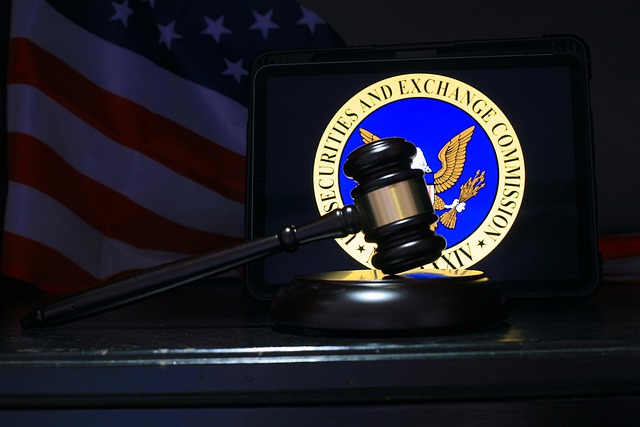Environmental Crime Trials are a powerful legal tool to combat ecosystem damage and enforce regulations, with severe penalties deterring environmental misconduct. These trials tackle trademark infringement as an environmental crime, where criminals misuse brands for deception or funding illegal activities, risking public health and safety. Global case studies highlight successes like prosecuting hazardous waste dumping, but challenges include complexities, lack of international cooperation, and subtle crimes leading to acquittals. Enhanced legislation and strategic legal approaches are crucial to ensure accountability for the Legal Consequences of Trademark Infringement and environmental degradation, protecting both ecosystems and economic systems.
“Uncovering the Legal Landscape of Environmental Crime Trials: Holding Offenders Accountable for Their Actions
This comprehensive guide explores the intricate world of environmental justice through the lens of criminal trials. We delve into the framework that underpins these legal proceedings, shedding light on how societies hold perpetrators accountable for ecological crimes.
From trademark infringement, a key focus on the legal consequences, to real-world case studies, this article offers an in-depth analysis of successful prosecutions and their impact. Understand the scope and implications of environmental crimes and their unique challenges.”
- Understanding Environmental Crime Trials: A Legal Framework for Accountability
- The Scope and Impact of Trademark Infringement in an Environmental Context
- Case Studies: Successes and Challenges in Prosecuting Environmental Crimes
Understanding Environmental Crime Trials: A Legal Framework for Accountability
Environmental Crime Trials represent a critical legal framework designed to hold both corporate and individual clients accountable for environmental transgressions. These trials delve into the intricate web of regulations, laws, and treaties aimed at preserving our planet’s health and biodiversity. The process encompasses all stages of the investigative and enforcement process, from the initial violation to the ultimate resolution through prosecution or settlement negotiations.
The legal consequences of environmental crimes can be severe, often involving significant monetary fines and prison sentences for those found guilty. This serves as a powerful deterrent, encouraging businesses and individuals to uphold their environmental stewardship responsibilities. Understanding these trials is essential in navigating potential pitfalls and avoiding indictment, ensuring that actions taken respect the delicate balance of our natural ecosystem.
The Scope and Impact of Trademark Infringement in an Environmental Context
In the environmental justice landscape, trademark infringement takes on a unique and significant dimension. Beyond the traditional boundaries of intellectual property, this crime has profound implications for both the natural world and economic systems. Environmental criminals often use well-known trademarks or logos to mislead consumers, sell counterfeit products, or even fund illegal activities, leading to severe legal consequences. These acts not only undermine brand integrity but also pose risks to public health and safety, especially when it involves the sale of contaminated goods or services bearing legitimate company names.
The scope of trademark infringement in an environmental context is vast. It encompasses various white-collar and economic crimes that target both businesses and consumers. From counterfeiting eco-friendly products to using false labels for toxic substances, these infringements can occur at every stage of the investigative and enforcement process. Achieving extraordinary results in such cases requires meticulous legal strategies, leveraging evidence from environmental experts alongside traditional law enforcement methods. The impact extends beyond financial losses; it reflects on public trust and the integrity of eco-conscious practices, highlighting the critical need for stringent measures against these crimes.
Case Studies: Successes and Challenges in Prosecuting Environmental Crimes
Environmental crime trials have been a growing area of legal interest due to the increasing awareness of ecological preservation. Case studies from around the globe offer valuable insights into the successes and challenges faced when prosecuting environmental crimes. For instance, in one notable case, a multinational corporation was successfully prosecuted for illicitly dumping hazardous waste, leading to substantial fines and the complete dismissal of all charges against its executives. This sent a strong message regarding the legal consequences of trademark infringement on the environment.
Despite these successes, challenges remain. Legal complexities, lack of international cooperation, and the subtle nature of environmental crimes pose significant hurdles. Some cases have resulted in acquittals or light sentences, highlighting the need for improved legislation and enforcement strategies. Nevertheless, these trials are crucial in fostering accountability within respective businesses and ensuring that those responsible for environmental degradation face justice for his clients.
Environmental crime trials play a pivotal role in holding perpetrators accountable for their actions that harm our planet. By understanding the legal framework, assessing the scope and impact of environmental offenses like trademark infringement, and learning from case studies, we can strengthen our efforts to protect the environment and ensure justice prevails. The successful prosecution of these cases not only serves as a deterrent but also underscores the significant legal consequences of environmental crimes.






